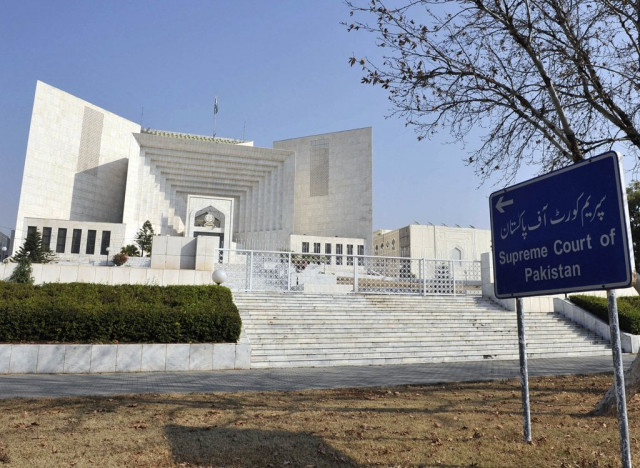Top court strikes down FSO’s power to seal restaurants
SC's ruling terms power of sealing premises in present form discriminatory

The Supreme Court has declared that power of Food Safety Officer (FSO) of the Punjab Food Authority to seal any restaurant is illegal and unconstitutional in the absence of any legislative policy or guideline and without any remedial process.
In a 13-page judgment, authored by Justice Syed Mansoor Ali Shah, the apex court struck down the power to seal the premises of a food operator or a food business by the FSO in section 31(2).
“In the absence of any legislative policy or guideline clearly spelling out when the sealing can take place and there being no remedial process provided against sealing, the power of sealing in the hands of the FSO can easily be applied arbitrarily which cannot be permitted under our constitutional scheme,” the ruling said.
“As any such act would offend fundamental rights under Articles 18, 23 and 25 of the Constitution. The power of sealing of premises by the FSO, in its present form, is therefore ex facie discriminatory. We, therefore, declare that the power of the FSO to “seal any premises” in section 13(1)(C) to be unconstitutional and illegal,” it added.
Read more: Delegating authority: Food watchdog set for province-wide operations
On August 8, 2015, the FCO visited a Chinese restaurant in Lahore and after carrying out inspection of six freezers, sealed the restaurant, invoking his powers under section 13 (1) (C) of the Punjab Food Authority Act (PFAA), 2011. Later, the restaurant was de-sealed on August 17.
The restaurant was served with an improvement notice under section 16 of the PFAA. However, the restaurant proprietors challenged the sealing, the methodology of enforcement under the PFAA and the constitutionality of the power of “sealing” exercised by the FSO under section 13 (1) (C) of the Act.
A three-judge bench of the apex court, led by Justice Manzoor Ahmad Malik, has noted that any rules, regulations or the standard operating procedures (SOPs) promulgated under the Act dealing with “sealing of the premises” by the FSO in the absence of any sealing power under the Act are, therefore, declared as illegal.
The court also said that any drastic step by the Food Authority or its officers that is not based on scientific risk analysis or is not proportionate to the health hazard involved, can cause huge economic and financial loss to the food business by bringing the business of a food operator to a crushing halt, thereby offending the constitutional rights to business and property of a food operator or food business.
The judgment stressed the need for taking a balancing act by the Food Authority. It noted that if the contravention under the Act can be remedied through a less harsh mechanism provided under the law, taking of a more drastic step should be avoided. “This is a balancing act the Food Authority has to undertake to meet the international food law principle of proportionality,” Justice Shah noted.
The judgment said that section 38 of the Act deals with publication in the newspapers and provides that after the conviction under the Act has attained finality, the Food Authority with the permission of the special court can publish the name of the food operator or food business in the newspapers or in any other mode for information.
Also read: Punjab Food Authority moves to ensure food security
“This clearly bars the Food Authority and its officers to publicize any proceedings taken against a food business or a food operator under the Act unless the conviction has attained finality and there is permission granted by the court for its publication,” Justice Shah said.
“The Food Authority and FSOs, therefore, cannot release any information during the pendency of the proceedings under the Act. This is also in line with the requirement of due process and fair trial,” the ruling added. The court also said that any violation of section 38 would make the FSO or any other officer of the Food Authority liable to departmental action.
The court is also noted that the Act mandatorily provides for the inclusion of several females in the composition of the Food Authority. It had asked the concerned secretary of the government of the Punjab if the requirement of gender balance has been complied with.
The secretary had assured that section 4 has been given full effect to and the composition of the Authority is complete in accordance with the law. The court set aside the judgment and declare the power to seal the petitioner restaurant by the food safety officer as unconstitutional and illegal.



















COMMENTS
Comments are moderated and generally will be posted if they are on-topic and not abusive.
For more information, please see our Comments FAQ